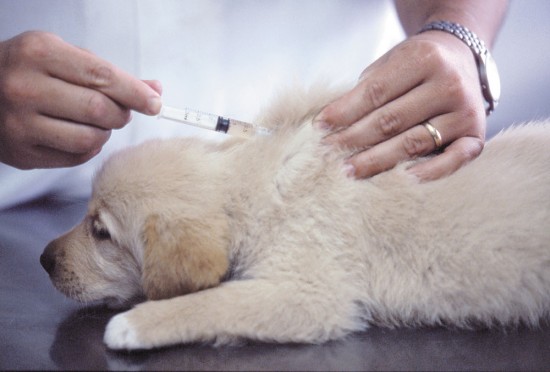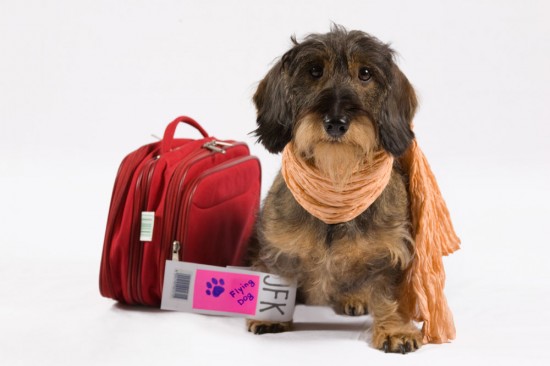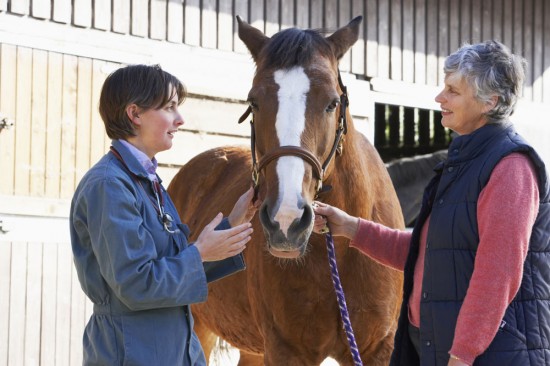

Vaccines are biological agents administered to a healthy animal in order to give that animal immunity against a specific disease or condition. Vaccinations generally contain minute doses of de-activated microorganisms that in their live state, could potentially cause illness or disease. Introducing a minute amount of the de-activated agent of a vaccinatable disease causes the body to recognise it as an invasive agent without being exposed to the risk of the live form of the infection or organism. This triggers the immune system of the dog to fight off the agent, and so, build up antibodies against it that will remain in place to fight off the live form of the micro-organism in future, should the dog becomes exposed to it.
Not every potentially dangerous condition or illness can be vaccinated against, and even among those that can, what conditions are vaccinated against as standard vary from country to country, depending on the prevalence of the condition within the canine population as a whole.
In the UK, each condition that we commonly vaccinate dogs against requires a different vaccination agent, although these are usually combined and administered together in one or two treatments, to avoid the need for multiple vet visits and injections.
Vaccinations are the most important way to safeguard the long-term health and wellness of dogs and puppies within the UK, and when the vast majority of dogs within a given area or country are vaccinated, this reduces the risk factors for all of the dogs in the area, even those that are not vaccinated. Vaccinating dogs and puppies is therefore very important, not just for the ongoing health and wellbeing of each individual dog, but for the overall health and condition of the dog population within the UK.
While adult dogs can be vaccinated at any age against the main transmissible conditions that they may come into contact with, vaccination is especially important for puppies and young dogs. As a dog ages, their immune systems develop and strengthen alongside of their physical development, giving them a greater chance of fighting off any potential disease or condition that they may come into contact with. Puppies and young dogs have not yet had the chance to build and strengthen their immune systems by means of exposure to the outside world, and so the risk factors for their developing or catching any illness or infection that they may come into contact with while young is much higher than it is for adult dogs.
Puppies are much more prone to developing both minor and major illnesses during their first few weeks and months of life than fully-grown dogs. This is why veterinary surgeons strongly advise all puppy owners not to allow their pups outside of the home or into contact with other dogs until they have received their initial vaccinations and have had time to develop the full protection offered by them.
In the UK, the usual conditions and transmissible canine illnesses that we currently vaccinate against as standard are:
Additionally:
More information on all of these conditions and vaccinating against them can be found in this article.
Most canine vaccinations are administered by means of an injection. For a puppy’s first vaccinations, they will require two separate injections, administered two weeks apart, in order to provide immunity against all of the diseases and conditions listed above.
The vaccine for kennel cough is usually administered separately as a nasal spray, although an injectable form of the vaccine is also available for dogs and puppies for whom a nasal spray will prove unsuitable.
The vaccine for rabies, if given, is administered on its own.
All vaccinations will be given by your veterinary surgeon in a consultation, usually at the surgery premises, although many vets will offer a home visit to administer vaccines if requested, at an additional cost.
When a puppy is born, they are partially protected from external infections and dangers due to an inherited immunity transferred to them through the milk of their dam. However, this will only protect them during the first few weeks of their life, and so it is important to arrange vaccination for your puppy at the appropriate developmental stage, so that they will be ready to go out into the wider world for the first time safely and fully protected.
The initial vaccination of the two-stage process is usually given at seven to eight weeks of age, with the second stage given two weeks later. You will still need to wait an additional seven days after the second vaccine has been administered before your new puppy will be able to go outside safely.
WSAVA guidelines recommend that a booster for core vaccines is given 12 months after the initial puppy vaccinations. For older dogs, their vaccinations do need to be kept up to date but it is recommended that vaccines should not be given needlessly. WSAVA recommends that the core vaccines should not be given any more frequently than every three years after the 12 month booster injection. There are still other non core vaccines that maybe needed more often than this, such as vaccines to protect against Kennel Cough and Leptospirosis. This can be too complicated for the average pet owner, so it is recommended you take your dog for a yearly health check by your vet. The vet will then be able to review your dogs health and lifestyle, and then they will only give your dog the necessary vaccines which they think are needed.
In a very small minority of cases, some dogs and puppies may suffer from an adverse reaction to one of the component parts of the vaccine, or the carrying agent used to deliver it. This is extremely rare, however, and unless you have cause to suspect that this may be the case, should not be used as a reason to avoid vaccination. Your dog or puppy should always be in good health when vaccinated, and you should discuss any health concerns or problems with your vet before proceeding with vaccination.
A small number of dogs and puppies will develop a minor rash or sensitivity around the area of the injection site for a couple of days after administration, and many dogs will be a little more sleepy or subdued than normal for a day or two following vaccination. This usually resolves itself promptly on its own, and again, should not generally be considered as a reason to avoid vaccination.
Many of the various diseases and conditions that are vaccinated against as standard are incredibly painful, often incurable, and sadly, may prove fatal. Vaccination can help to prevent this, and having your dog or puppy vaccinated and keeping their booster shots up to date is a vital part of responsible dog ownership.
You should discuss any concerns you may have about vaccination with your vet, in order to establish the best way to proceed for your own dog.
 Airline Travel And Your Dog
Airline Travel An
Airline Travel And Your Dog
Airline Travel An
 Getting A Horse Or Pony Vetted Prior To Purchase
Getting A Horse O
Getting A Horse Or Pony Vetted Prior To Purchase
Getting A Horse O
 Make Your Home Beautiful With Fish Aquarium
Make Your Home Beautiful With Fish Aquarium
We
Make Your Home Beautiful With Fish Aquarium
Make Your Home Beautiful With Fish Aquarium
We
 How To Sponsor A Cat
How To Sponsor A
How To Sponsor A Cat
How To Sponsor A
 ***The Jewel That was Jessica
How could one single solitary chicken touch my heart and ma
***The Jewel That was Jessica
How could one single solitary chicken touch my heart and ma
Copyright © 2005-2016 Pet Information All Rights Reserved
Contact us: www162date@outlook.com